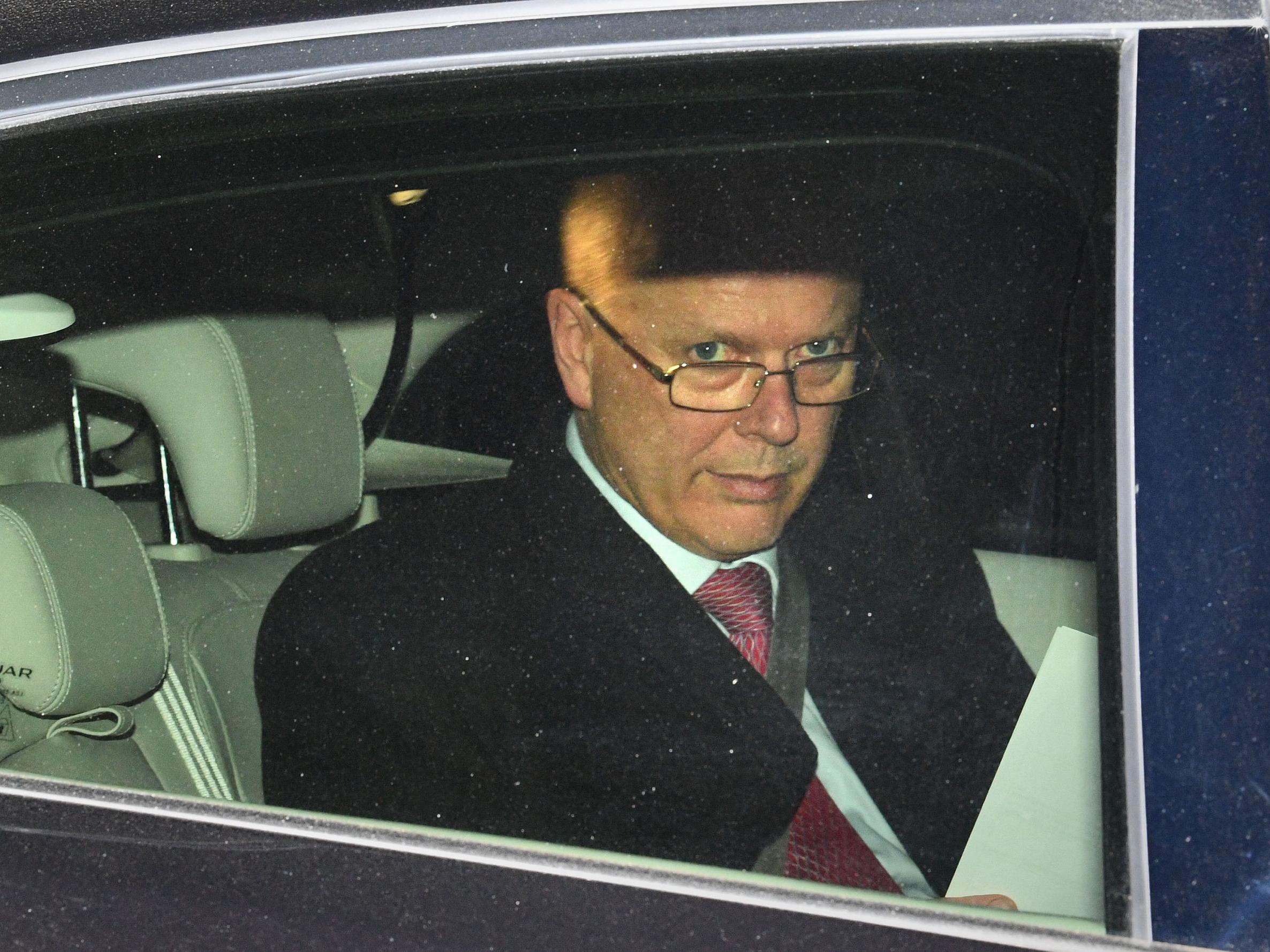Does it matter if Chris Grayling chairs the security and intelligence watchdog?
The criticism levelled at Grayling during his tenure in the justice and transport departments will seem like nothing when the contents of the Russia report are finally revealed, writes Sean O'Grady


The strong suggestion that Chris Grayling is to be the next chair of the Intelligence and Security Committee (ISC) has been met with a certain amount of concern in some quarters, and straightforward scorn in others. Dominic Grieve, the former chair who lost his seat in the last election, says that it would be “bad for the reputation of the committee” if Mr Grayling were to be given the leadership role by Conservative whips instructing their MPs on the committee to back him. Unlike some of his predecessors – former defence or foreign secretaries, say – Mr Grayling has no great previous experience in the field. (In that respect he mirrors the appointment of David Frost as national security adviser.)
Mr Grayling, it is also fair to say, did not enjoy a record of unalloyed success as a minister at the Department of Transport and before that at Justice. So at a moment when the report on Russian interference is due to be published by the committee, and when Britain faces a bewildering and frightening range of external and internal threats from rogue states, hostile powers such as China and Russia, and terrorists, the committee is about to be headed by someone thought of as a Downing Street stooge who is out of his depth.
The ISC is an unusual and unique parliamentary body. Although open to MPs and peers, it is not the usual select committee, governed by parliamentary rules. Rather, it has its type of membership, remit and workings defined by acts of parliament – the Intelligence Services Act (1994) and the Justice and Security Act (2013). It has a wide-ranging role in overseeing MI5, MI6, GCHQ, the Defence Intelligence service, the Joint Intelligence system, the National Security Secretariat and the Office for Security and Counter-Terrorism. The ISC has its own staff, separate from those that service other Commons and Lords committees, and even its website is hosted independently.
The general ethos of the committee is thus to be less partisan and more independently minded than the run of Commons committees. The whips and Downing Street are supposed to exert less influence in its independently organised scrutiny and democratic oversight. Given the subject matter, the committee usually hears evidence in private, under confidentiality and official secrets laws. It is supposed to carry authority derived from its integrity as an independent body.
The nine members that will sit on the committee have been nominated, in effect by their party leaderships, and ratified by a Commons vote. There are, in line with convention, five Tory MPs comprising a bare majority: Chris Grayling, Sir John Hayes, Julian Lewis, Mark Pritchard and Theresa Villiers (a former Northern Ireland secretary, meaning she is conversant with some security matters and arguably has a stronger claim to the chair). There were rumours that Ms Villiers had been blocked, but things seem to have been ironed out now.
For Labour there will be Kevan Jones and Diana Johnson from the Commons, plus Lord West. Lord West is a former First Sea Lord and served as a security minister in Gordon Brown’s government. He is far and away the most knowledgeable of the group, and would also be a capable chair. Like select committees, the ISC has sometimes been chaired by an opposition MP or peer, such as the Conservative Tom King during the Blair government. The SNP nominee Stewart Hosie makes up the nine. The next formal step is for the new ISC, long overdue, to elect a chair and then to consider the outstanding business of the Russia report. If they wish to familiarise themselves with it before publication, a further delay of weeks if not months may ensue. It may not be made public until after the summer parliamentary recess, almost a year after the previous committee finalised it. It would be an unprecedented delay, and a probable abuse of procedure, if not illegal in itself.
The ISC is not to be confused, by the way, with the Defence Select Committee (currently chaired by Tobias Ellwood, a Conservative), or the Joint Committee on National Security Strategy (chaired by Labour former foreign secretary Margaret Beckett).
The ISC is also unusual in sharing drafts of its reports before they are published, including a 10-day period for a prime minister to raise any concerns about national security. It is not clear whether Boris Johnson has completed a review of his own.
For the quarter century of its existence, the ISC has been respected and mostly free of controversy. The row about Mr Grayling and a prospective explosion over the contents of the Russia report will bring its activities into the sharpest of focus. Mr Grayling has faced a hostile media and opposition many times in his political career, but when the Russia report is issued, it will be like nothing before it.
Join our commenting forum
Join thought-provoking conversations, follow other Independent readers and see their replies
0Comments